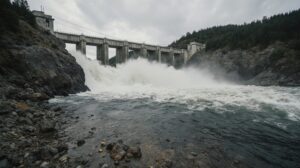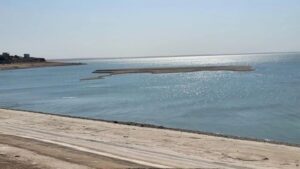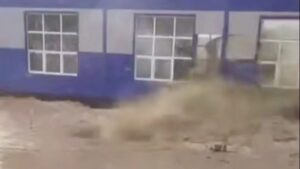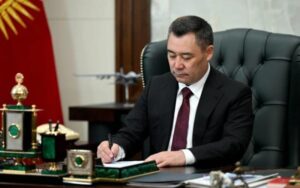In the new Kazakhstan region of Zhetisu, which celebrates the third anniversary of its formation, the next, already eighteenth, renewable energy facility was launched. The new hydroelectric power station HPP-3 with a capacity of 26 MW on the Kora River in the Eskeldinsky district is presented as a significant contribution to the «green» future of the region. However, behind the solemn speeches about attracted investments of more than 10 billion tenge and the creation of over 20 new jobs, the question inevitably arises about the real impact of such projects on fragile river ecosystems, which are already experiencing enormous anthropogenic pressure.
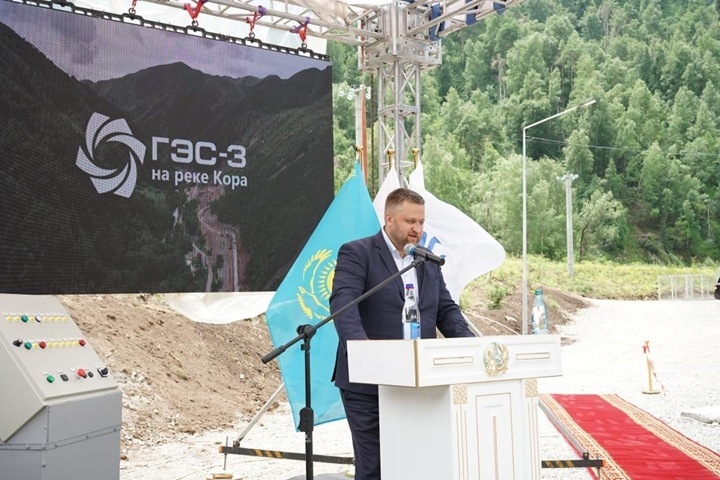
The launch ceremony of HPP-3 on the Kora River was accompanied by a film about the construction and a video congratulation from the Deputy Minister of Energy of the Republic of Kazakhstan Sungat Yesimkhanov. Deputy akim of the region Aset Kanagatov, who was present at the event, emphasized that «the project for the construction of a modern hydroelectric power station on the Kora River is part of an effective strategy for the development of the energy industry in Kazakhstan». He also added that hydropower «plays a key role in ensuring the country’s energy security and contributes to achieving the goal of reducing greenhouse gas emissions», and called the facility «not only a reliable source of energy, but also an important step towards preserving the environment».
Business representatives, director of Kora HPP-2 LLP M. Tukenov and general director of ASPMK-519 LLP A. Sychov, in turn, spoke about cooperation with local authorities and support for entrepreneurship. A. Sychov also announced the allocation of 50 million tenge for the reconstruction of a park in the city of Tekeli, calling this a manifestation of the social responsibility of business – a gesture, of course, positive, but not canceling the need for close attention to the environmental aspects of the company’s core activities, especially when it comes to exploitation natural resources.
The symbolic pressing of the red button marked the start of operation of the hydroelectric power station, after which officials inspected the facility and became familiar with technological processes that are said to minimize harm to nature. It is important that such statements are supported by ongoing and independent environmental monitoring.
According to the head of the hydroelectric power station, Ilyas Khamitov, the total cost of the project, implemented with private investment funds, amounted to 10.5 billion tenge, and 21 permanent jobs were created. He said that at the station, which operates around the clock, processes are mainly automated; modern Austrian equipment is used, which will initially be monitored remotely by foreign specialists. Khamitov expressed confidence that the new hydroelectric power station «will meet increasing needs for electricity, increase the reliability and quality of power supply, and improve the environmental situation». The last statement, about «improving the environmental situation» through the construction of a dam and changing the hydrological regime of the river, raises natural questions among ecologists, because any interference in natural processes carries risks for biodiversity and the natural state of waterways.
HPP-3 on the Kora River became the eighteenth renewable energy facility in the Zhetisu region, where 17 similar installations with a total capacity of 225.4 MW are already operating. By the end of the year, it is planned to complete two more projects for the construction of hydroelectric power stations with an installed capacity of 20.6 MW.
Since the beginning of the year, domestic production of electrical energy in the Zhetisu region has reached 247.3 million kWh, of which 191.8 million kWh came from renewable energy sources. This is 16% more than in the same period last year, reflecting a general trend towards an increase in the share of renewable sources. The only question is at what cost this growth comes to nature and how fully long-term environmental risks are taken into account when planning and implementing such hydropower projects.
Alexander Eskendirov (Rivers.Help!)
